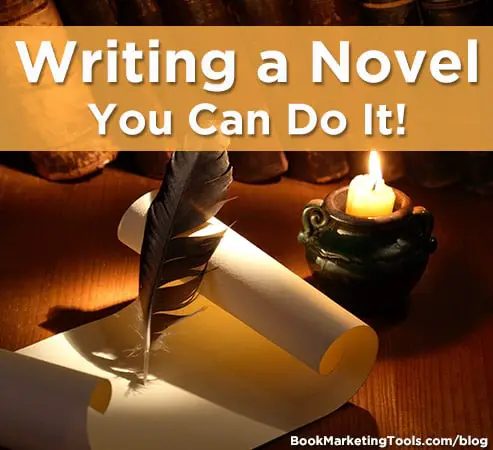Many of us who are just starting out begin our writing adventure with the short story. They are a great way to get going – as they often contain only 1,500 to 3,000 words, they can be produced in as little as a few hours. They are a fantastic format for developing confidence in handling plot, character development and really establishing your own voice. But there is a limit to what can be achieved in a short story because the word count simply isn’t enough to explore your themes and characters at greater length.
So what to do if you’ve reached the stage in your writing career when you feel ready for a bigger challenge? Why not take on a novel! It’s said that everyone has a book in them, so why not see if you can find yours?
Getting started
Once you’ve decided that you want to go for it, don’t be daunted by the task ahead! A good length for a novel is about 80,000 words (science fiction and fantasy novels tend to be a little longer) so if you usually average about 2,000 words for a short story, all you really need to do is produce the equivalent of 40 short stories and you’re done! You could be finished in a year, by writing less than 2,000 words a week.
Choosing a plot
We have all heard the saying, ‘write about what you know’. Is there an aspect of your life that might be interesting to other people? Do you have an occupation that could form part of the plot, or an unusual hobby? Write down all of your ideas on a piece of paper, together with some ideas for characters, and have fun playing about with them.
There is no need to rush this stage – it’s a great opportunity to enjoy the creative process, putting different plot threads and characters together, and seeing what happens. And remember that you don’t have to hit upon something so totally unique and original that no-one has done anything remotely similar ever before. If you can put your own twist on the tale – and you bring your unique perspective and life experience to everything you write – that’s good enough!
You know that you’ve got a great plot if you can explain it in a sentence. ‘Man starts work in a fantasy office and solves several puzzles while finding love.’ It can be as simple as that, and the simpler the better, as you will need your sentence to keep you on the straight and narrow once the writing gets underway.
Planning your novel
Some people like to decide roughly how many chapters they need to do justice to their plot, and then work out what needs to happen in each chapter to keep their book on track. Others like to set forth with the ending in mind and just head generally in the right direction. And if you ever feel as if you’re losing your way, there is nothing wrong with taking a few days out for a good plotting session. Far better to stop and make sure you know where you’re going than to blunder onwards if you’re not sure!
Starting to write
The worst thing to do is to imagine that you’ve got to produce the next best seller and that every word you write has got to be perfect – it’s more important to get started. Rather than getting hung up on your first sentence, just write anything to get you going – you can always change it later. And try to get several chapters done before you are tempted to revise what you’ve done because it’s a lot more satisfying to have written five chapters than to have written the first chapter five times! Too much rewriting at an early stage can be disheartening, so try to make some progress.
It’s a good idea to begin a log so that you can make a note of important details as you go. Jot down details about the plot and character as you go…one you’re on chapter twenty, will you be able to remember the name of a character who popped up in chapter two? It doesn’t matter whether you use an excel spreadsheet or a notebook – it will save a lot of time if you have all the details to hand.
Regular writing sessions
The only way to make progress is to set aside regular time to write. Could you get up a little earlier and do half an hour before work, or could you fit in a few hundred words in your lunch break or after dinner? Remember that you don’t necessarily need access to a computer to work on your novel – if you’ve got a notebook, you can plan what you want to write so when you get back to your keyboard, you’ve already done the hard work.
The next in this blog series will cover how to stay focused as your project’s word count starts to increase.
Tracey Dawson is a long-term writers’ group member and chair, and also a committed compliance professional. She has combined her two passions in her fifth novel, which follows the offworld adventures of Greville the compliance auditor, which is available on Amazon here.

